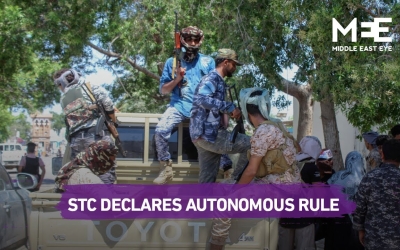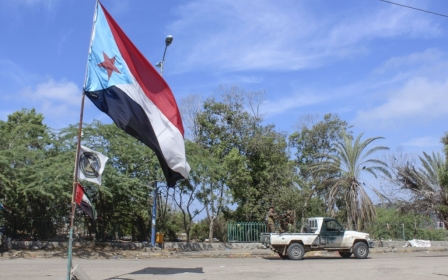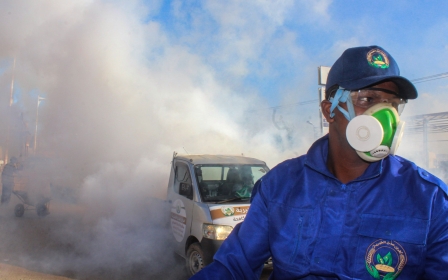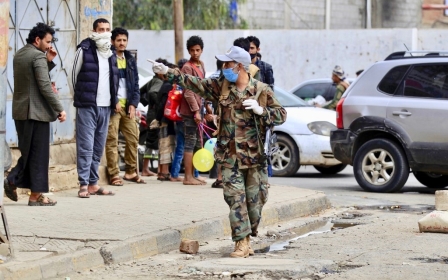South Yemen fighting between STC and pro-government forces leaves 14 dead
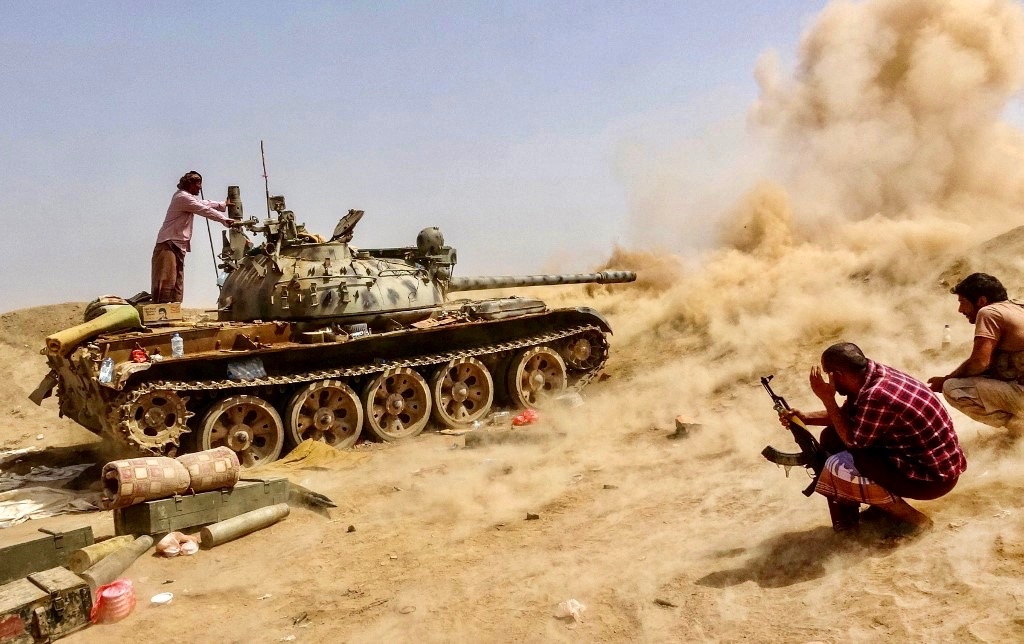
Fourteen combatants died in Yemen on Saturday as fighting between pro-government troops and separatist forces entered a sixth day in the southern province of Abyan, according to sources on both sides.
Separatist forces of the Southern Transitional Council (STC) are resisting an offensive by pro-government troops on the outskirts of Zinjibar, about 60km (35 miles) from the main southern city of Aden.
"Fourteen fighters, including 10 pro-government soldiers, were killed on Saturday," a government military official told AFP on condition of anonymity.
The toll was confirmed by a separatist military source, who also claimed the capture of "40 pro-government soldiers and the seizure of military equipment".
"They [pro-government soldiers] were unable to advance towards Zinjibar and they will only get there over our dead bodies," a separatist commander on the frontline told AFP.
The fighting is the first major confrontation since the separatists declared self-rule in southern Yemen on 26 April, accusing the government of failing to carry out its duties and of "conspiring" against their cause.
After declaring self-rule, the STC moved to wrest control of its economy from the government, ordering all taxes and levies in Aden to be deposited in its bank accounts, Middle East Eye reported earlier this week.
The bold move to redirect revenues from the government-controlled Central Bank in Aden stoked tensions as fierce clashes between the STC and pro-government forces were erupting elsewhere across the south.
The clashes complicate Yemen's war between the government - backed by a Saudi-led military coalition - and Iran-backed Houthi rebels who control much of the north, including the capital Sanaa.
The government and the STC had technically been allies in the long war against the Houthis.
Still, the separatists in the south, which used to be an independent country, have agitated to break away once again, a campaign that was temporarily put to rest with a power-sharing deal signed in Riyadh last November.
Over the past six years, the Yemen conflict has killed tens of thousands of people, mostly civilians, and triggered what the United Nations considers to be the world's worst humanitarian crisis.
Middle East Eye delivers independent and unrivalled coverage and analysis of the Middle East, North Africa and beyond. To learn more about republishing this content and the associated fees, please fill out this form. More about MEE can be found here.


